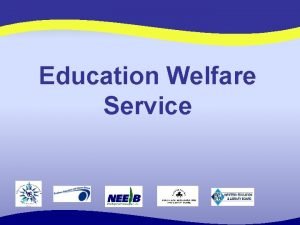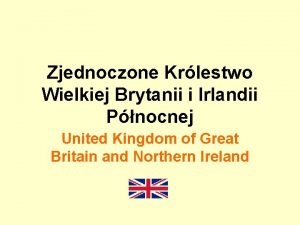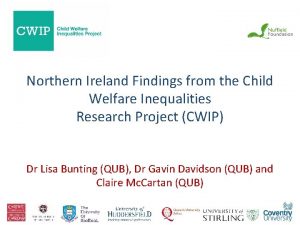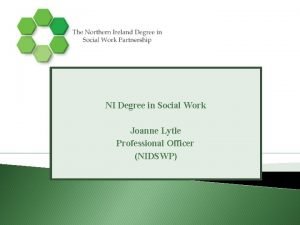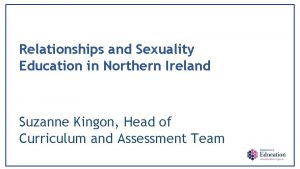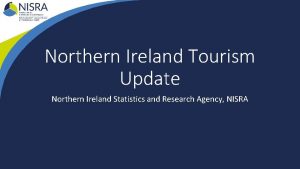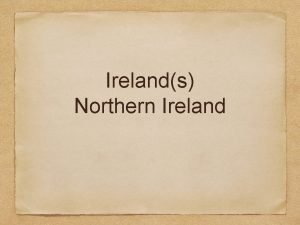Relationships and Sexuality Education in Northern Ireland Suzanne








- Slides: 8

Relationships and Sexuality Education in Northern Ireland Suzanne Kingon, Head of Curriculum and Assessment Team

The NI Curriculum All publicly funded schools required to deliver the NI Curriculum. Equal emphasis to knowledge, understanding and skills. Designed to give schools flexibility in what they choose to teach and to use approaches that best suit their pupils Greater The flexibility and less prescription. curriculum places significant emphasis on developing the core literacy, numeracy and ICT skills.

RSE in the NI Curriculum RSE is covered within the statutory curriculum under the Personal Development and Mutual Understanding (primary) and the Learning for Life and Work (post-primary) Areas of Learning. The statutory curriculum includes prescribed minimum content in relation to RSE. This is a minimum entitlement that all children should receive. Schools have flexibility to decide on how best to deliver RSE to meet the needs of pupils. Curriculum design, content and implementation is evaluated by Education and Training Inspectorate (ETI).

RSE Policy The Department requires each school to have its own written policy on how it will deliver RSE. It is envisaged a school’s policy will reflect its ethos and be subject to consultation with parents and pupils and endorsed by the Board of Governors. ETI through its inspection of child protection and safeguarding examines a school’s RSE policy. ETI reports its evaluation of safeguarding based on the evidence of the whole range of related policies, including RSE.

RSE in our Schools ETI EVALUATION (2016) Almost all of lessons observed were good to outstanding. Almost all schools leaders and teachers recognised the importance of an RSE programme. For the most part, increasing development and implementation of appropriate RSE policies and practices, aligned to the ethos of individual schools. Increased awareness of the importance of preparing children to cope with the potential risks posed by access to online information and contact with others. Good links with a wide range of appropriate statutory and voluntary agencies

Best Practice in RSE Consultation with Pupils, Parents and Goverors External Agencies and Guest Speakers Purposeful Leadership and Clear Vision Significant Role in the Curriculum Linked to ethos, and ethical framework of the school Whole school planning process Robust Monitoring and Self. Evaluation

Resources and Support In 2015, the NI Council for Curriculum Examinations and Assessment (CCEA) published revised RSE guidance for primary and post-primary schools to reflect recent societal changes. Designed to help schools create a meaningful policy for RSE and manage potentially challenging situations. Contains a directory of resources and signposts schools to additional sources of support. Belfast Health and Social Care Trust provides a training programme which aims to support teachers in the delivery of the RSE curriculum. Two-thirds since 2013. of all post-primary schools have taken part in the training

Current Work and Moving Forward In 2018, the Department has asked CCEA to review the existing range of RSE curriculum resources available to schools and identify any gaps. CCEA has been specifically tasked to develop additional guidance and resources to support the teaching of sensitive issues including sexual consent, domestic and sexual violence and abuse, LGBTQ+ issues, and the effect of social media on relationships and self-esteem. New resources are being piloted with schools and other key stakeholders. Recent CCEA launch of online RSE Hub Online to signpost schools to RSE resources. is also developing a curriculum framework which clearly sets out for schools and teachers key issues to be covered at each Key Stage in relation to RSE.
